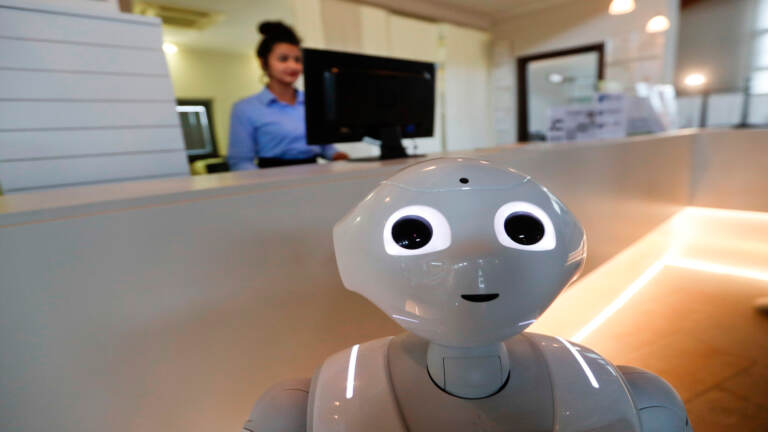Will A.I. Take Your Job — or Make It Better?
We explore how A.I. is transforming the way we work — for good and for bad.
Listen 49:35
Whether you’re a student or a doctor, a plumber or a truck driver, a university lecturer or a radio reporter, artificial intelligence is changing the way we work. For some workers, A.I. is taking over tedious and time-consuming tasks, freeing them up to focus and get more done. For others, it’s led to questions about what A.I. means for the future of work — or whether, in a few years, they will have jobs at all.
What are the limits of A.I.’s abilities? How can it help us do our jobs better rather than simply replacing us? What checks and balances do we need to control its development? And are there any jobs that will not be affected?
On this episode, we explore how A.I. is transforming the way we work — for good and for bad. We hear stories about the future of robot plumbers, the push to integrate A.I. into medical education, how physicians are responding to its increasing presence in medicine, and the dystopian threat of neurotechnology.
Also heard on this week’s episode:
- We talk with Jim Al-Khalili, a theoretical physicist and physics professor at the University of Surrey, about how A.I. is changing the way he teaches students and assigns homework.
- A.I. is increasingly infiltrating every aspect of health care, from prioritizing patients to making diagnoses. That’s led some health care experts to argue that A.I. should be a part of medical students’ education. Alan Yu reports on how some of these emerging tools work — and maybe more importantly, when they don’t.
- Cardiologist and Harvard Medical School professor Jag Singh discusses how A.I. could improve everything from patient care to medical research. His book on the topic is “Future Care: Sensors, Artificial Intelligence, and the Reinvention of Medicine.”
- Earlier this year, Nita Farahany — a leading scholar on the ethical, legal, and social implications of emerging technologies — presented a chilling scenario at the World Economic Forum in Davos: a not-so-distant future in which brain technology along with A.I. is used to track the attention and thoughts of office workers. We talk with Farahany about her new book, “The Battle for Your Brain: Defending the Right to Think Freely in the Age of Neurotechnology.“
Segments from this episode
WHYY is your source for fact-based, in-depth journalism and information. As a nonprofit organization, we rely on financial support from readers like you. Please give today.






